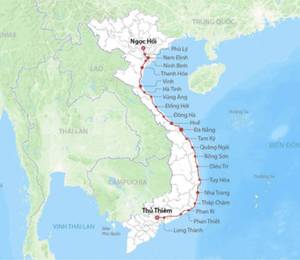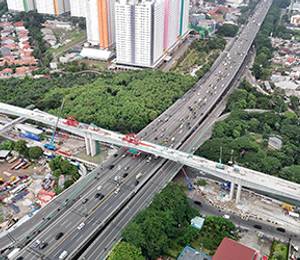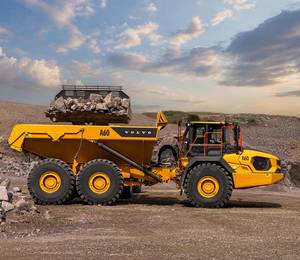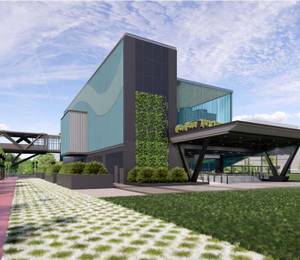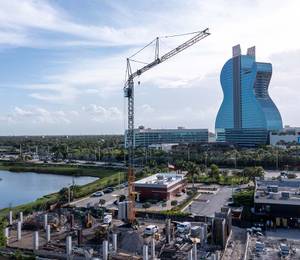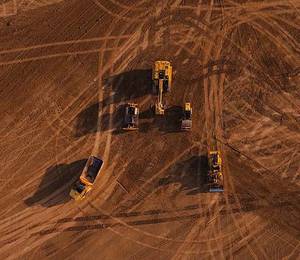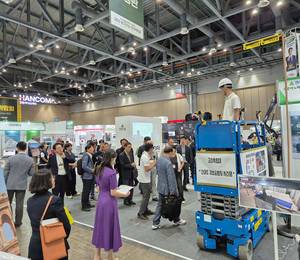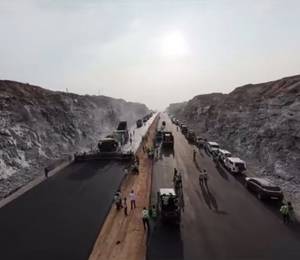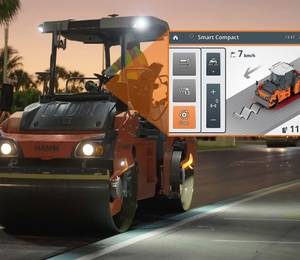Malaysian concrete construction service provider, Sonicon Construction Sdn Bhd, has formed a new partnership with Canadian provider of ground penetrating radar (GPR) technology, Xradar, to provide scanning services for Malaysia’s construction industry.
With this partnership comes the formation of Xradar Asia Sdn Bhd, which aims to become one of the region’s leading service providers in the field of construction engineering, ensuring that all projects are performed to meet or exceed expectations, in adherence to all safety standards and regulations.
Guan Han Tan, founder and managing director of Sonicon Construction Sdn Bhd, said, “We firmly believe that concrete scanning should be more widely practised in the region because omitting the step may result in undetectable issues that can impact the safety and integrity of the building and potentially put people, especially employees, at risk.
“However, without the right technology, skills and knowledge, the current scanning solutions do not actually detect issues with the same level of accuracy and thoroughness as they should. Realising the gap in the industry, we decided to enter into a strategic partnership with Xradar because we wanted to emphasise the importance of construction scanning in the renovation, refurbishment and rectification market while improving our knowledge, equipment and software of this practice in the region.”
Xradar Asia combines its cutting-edge technology with Sonicon’s expertise in the local industry. The Malaysian company has worked on quite a few projects involving Pavillion Bukit Jalil, Sunway Pyramid, Menara Etiqa, KL Eco City, and the MRT2, together with Xradar’s revolutionary technology for the Malaysian and Singaporean markets.
According to Sonicon, this new partnership aims to bring a higher engineering scanning standard to the construction industry and to help contractors, consultants and building owners reduce the time and costs associated with an external survey, as well as to give them peace of mind when undertaking a project or being awarded a new contract, knowing that construction can begin sooner.
Preserving competitiveness of Malaysia’s construction industry
Malaysia’s construction industry is regarded as a major economic force in the country. The value of infrastructural development is rising annually, and in the second quarter of 2022, the industry grew by 6.1%, reaching RM29.9 billion.
Nevertheless, the construction industry was classified to be the riskiest in Malaysia over the last decade, with the highest rate of fatal accidents among all industries, explained Sonicon. This is primarily due to a lack of risk assessment practices and poor safety procedures and regulations. In 2020 alone, the industry was the third-largest contributor to the 31,943 accident cases reported to the Social Security Organisation.
In order for Malaysian construction industry to become a competitive sector, Sonicon stressed that it is imperative for construction-related firms to upgrade their capability in controlling the high number of accidents that occur and improve their safety management accordingly by investigating the causes of accidents, and looking for a new method to strengthen the safety performance in the industry.
The GPR technology has proven to be a useful technique as one of the biggest safety measures that can be taken, said Sonicon. It is used to assess the structural integrity of existing structures and locate embedded objects within concrete slabs and other structures prior to concrete cutting, coring, and drilling, among other things.
However, Sonicon pointed out that without the right knowledge of GPR, an untrained or inexperienced technician may misinterpret or overlook the data, causing contractors, consultants and building owners to lose confidence in the service provided. As a result, they have no plans to utilise the service again in the future. Due to a lack of expertise in the region, it is crucial for businesses to work with professionals who genuinely care about their growth and success while ensuring safety standards are met in a highly competitive market.
Strengthening the industry’s engineering standard
Sonicon believes that incorporating technology such as concrete scanning into the industry is certain to improve efficiency and quality of work among subcontractors and suppliers. This offers an innovative approach to the detection of corrosion in concrete, greatly improving the accuracy and speed of corrosion mapping, which in turn helps contractors cut and core safely by mapping the position of embedded objects and areas of risk – like drilling through wiring or pipe cables – more accurately and quickly.
“With the help of this partnership, we hope to introduce a new level of engineering standards for this task to the Southeast Asian construction and engineering industry,” said Morgan Carman, founding director and vice president of Xradar. “We hope that by combining this with Sonicon’s local industry expertise, this partnership will assist the region in making decisions to meet the challenging demands of today’s competitive market, making it the equivalent offering to what is available in the North American construction industry.”
By maximising their complementary strengths, both companies aim to revolutionise the construction industry in Southeast Asia, through improving the confidence and technical skills of the contractors, consultants and building owners in the region and also intend to expand their footprint to the rest of the Southeast Asian region.
